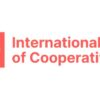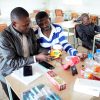From Bavaria to Africa
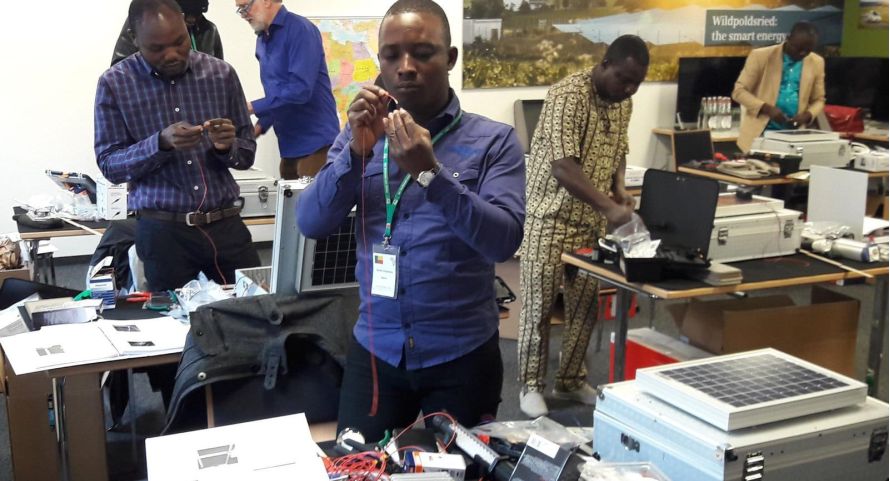
In the German village of Wildpoldsried in Bavaria’s Allgäu region, citizens have proven how citizen energy can advance a community. To pass on this knowledge, they developed practical training with others and – also financed by the Green People’s Energy (GBE) programme – qualified 4,000 African PV technicians. But it is not technology alone that connects Bavaria and Africa.
The village of Wildpoldsried, with 2,600 inhabitants, lies in a sea of green meadows surrounded by wooded hills. At first glance, the village resembles many other communities in Bavaria’s Allgäu region. Unlike most, the small village now has an international reputation – as an energy village that successfully took their energy supply into their own hands.
And so, more and more delegations have made pilgrimages to Bavaria. They want to know how the community succeeded in generating eight times more electricity from renewable energies than it needs itself and can cover around 60% of its own heating needs. Günter Mögele, second mayor of the municipality, welcomes up to 140 groups of visitors a year. He already quite a schedule planned when he takes them around important sites. From a hill, the visitors look down on roofs covered with PV modules and eleven wind turbines that rotate on the ridge on the edge of the municipality.
“These are our own wind turbines”
There is still room for eight more, Günter Mögele explains. The existing turbines were not financed by anonymous investors. Rather, 400 of the 750 households in the village have a stake in these wind turbines. “These are our own wind turbines,” he says. This citizen participation – first in the form of information, then financially – was and is for him the key to success.
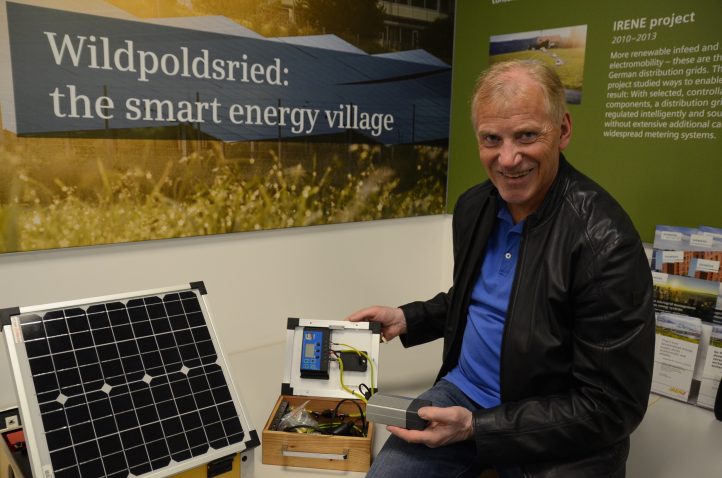
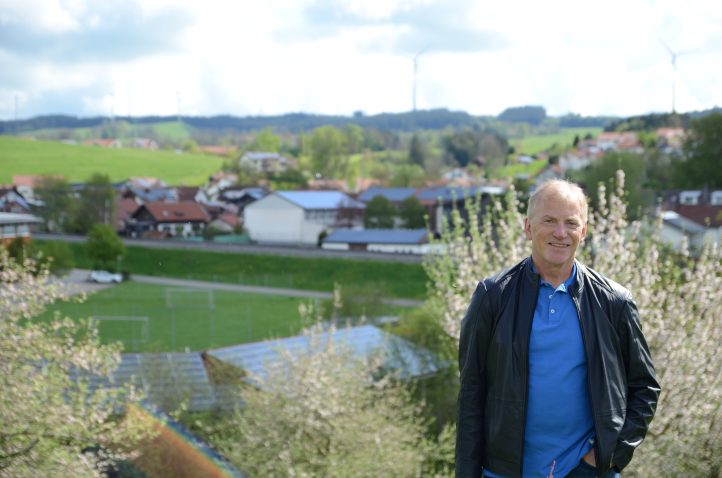
This was not foreseeable. Local councillor Mögele makes no secret of the fact that it was not easy to get citizens excited about the energy transition. In Wildpoldsried, too, electricity comes out of a socket, heat from their own oil-fired boiler room.
In the beginning, a few pioneers made the difference. One of them lives in the hamlet of Eufnach, just under four kilometres north-east of Wildpoldsried. Wendelin Einsiedler runs a farm with 130 cattle together with his brother. While his brother looks after the cattle, the 67-year-old takes care of his numerous energy projects. “Generating energy from cow poo has always appealed to me,” he says with a twinkle in his eye.
He started with 28 kW of power, today the peak load of his biogas plant is 2,400 kW. He has just enlarged the bonnet of his gas storage tank so he can store more biogas. He has laid a gas pipeline into the village, where nine combined heat and power plants now produce heat and electricity with his gas. He is a tinkerer through and through, motivated by technical challenges. Anyone who hears him talk about the many opportunities knows that the energy transition is a celebration for him, one that he has not had enough of for a long time yet.
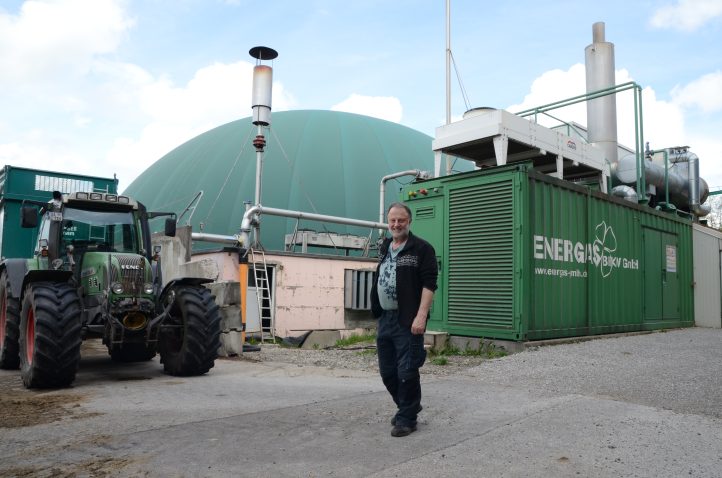
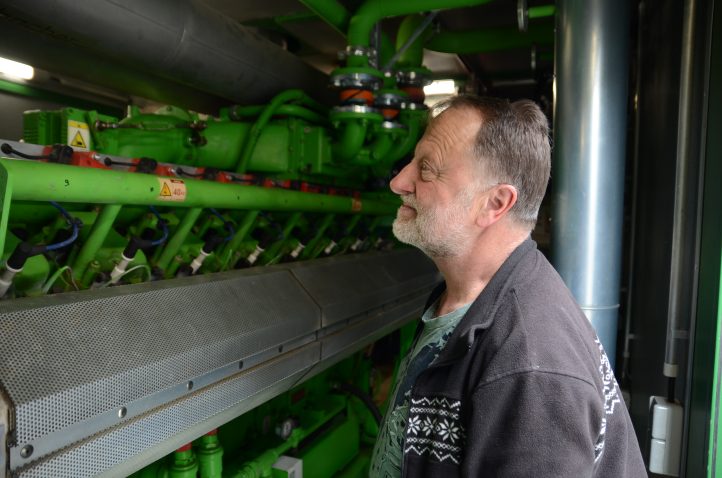
“Back then, he just got going, built the biogas plant and invested in two wind turbines,” says Günter Mögele. His technical expertise and his desire to break new ground laid the foundation for change. Wendelin Einsiedler found congenial comrades-in-arms in then mayor Arno Zengerle and his deputy Günter Mögele. Zengerle actively promoted the vision of a municipal energy turnaround and paved the way for it by equipping municipal buildings with PV, organising approval of the municipal council for block-type thermal power stations and other projects, and promoting the motto of the municipality “WIR – Wildpoldsried Innovativ Richtungsweisend”. “If you want to convince citizens, you have to lead the way as a municipality and set an example,” says Günter Mögele. Today, no one needs convincing in Wildpoldsried. The various lighthouse projects and energy crisis speak for themselves.
Technical skills – a bridge to Africa
“At some point we asked ourselves, what are we going to do with all this knowledge?” says Günter Mögele. This question formed the starting point for the partnership-based training project VET4Africa, which he founded with Manfred Wolf and Willi Kirchensteiner – both of whom worked for many years as trainers for the Bavarian Academy for Advanced Training and Personnel Management (ALP). VET4Africa stands for Vocational Education and Training. The idea: To train African vocational school teachers in a practical way so they can use their knowledge to train African specialists for PV systems.
“Training specialists is key if we want to advance renewable energies in Africa,” says Manfred Wolf about his commitment. He has taught at the ALP for many decades. Now, in 2017, he and his comrades-in-arms have developed a training concept that aims to make technology fun as well as to impart basic knowledge in a very practical way.
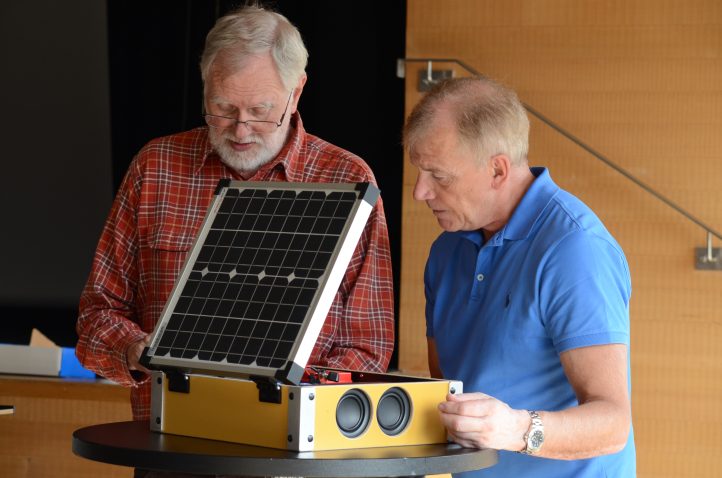
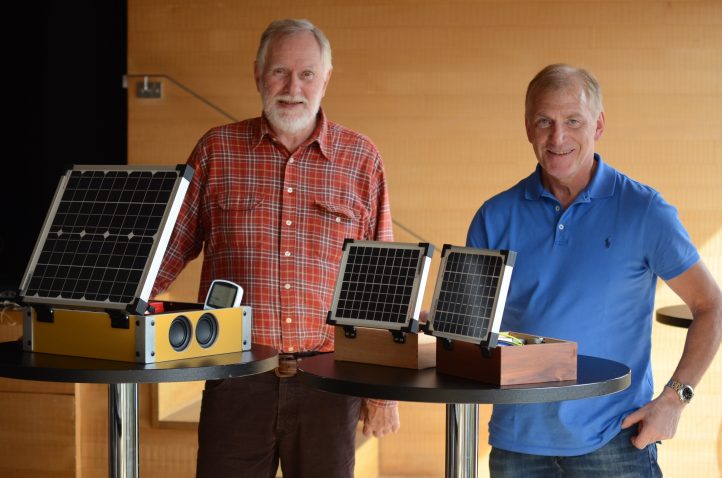
“In our photovoltaic course 1 (PV 1), the participants build their own solar suitcase, which they can use to train specialists in their country in a very practical way,” Wolf explains. In the PV 2 course they then learn to plan, build and maintain complex PV systems. 20 German vocational school teachers support the participants beyond the course, either digitally or on site.
Training the trainers
VET4Africa conducted training with financial support from BMZ. Since 2018, “Training of the Trainer for Photovoltaics” courses have been held in Wildpoldsried and in Altötting for African vocational school teachers, who have subsequently offered corresponding courses for their African colleagues in their countries through GPE. Because face-to-face courses were not possible during the Corona pandemic, GPE partner VET4Africa held digital courses and used them to train other African master trainers for their educational task.
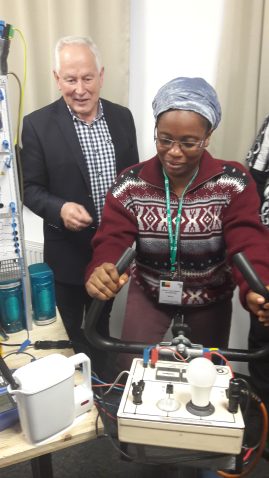
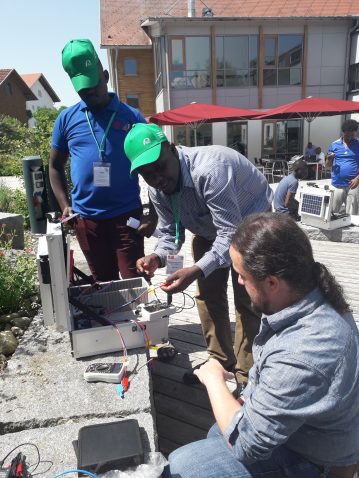
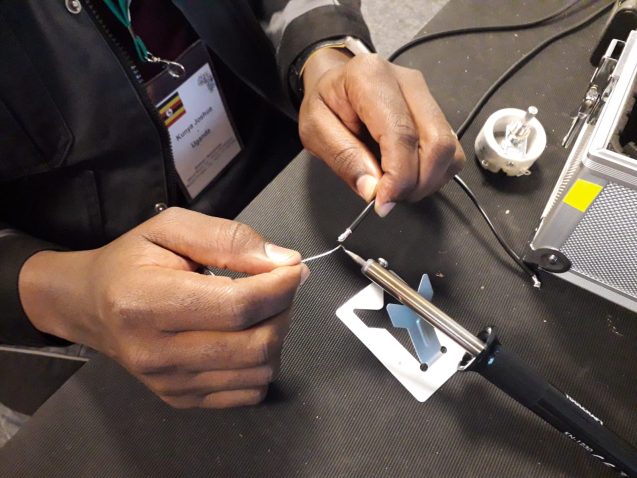
Since then, VET4Africa has trained more than 300 trainers from 17 African countries. The training places were in great demand. For 20 places on the PV2 course, 200 interested people applied. All those who were allowed to participate had to commit to train at least 50 professionals at PV1 or 30 professionals at PV2 level per year in their country after the training. This snowball system works: The course participants have now qualified around 4,000 PV technicians.
The numbers are impressive, and the stories and developments of some of the participants are also convincing. Bertrand Pani, a master trainer trained by VET4Africa, founded the German Solar Academy Cameroon in Cameroon and further developed the VET4Africa course system to include a PV3 course. He now plans complex PV systems for hospitals and schools in Cameroon. Mwamed Sizoomu, in turn, has set up a project for milk cooling in Uganda.
Practical PV training – key to quality
Günter Mögele and Manfred Wolf are still in contact with their trained African trainer colleagues. This is also the case with Dr. David Wekesa and Veronica Terenoi Nkooyio from Kenya. They have arranged to meet both of them this afternoon for a web conference.
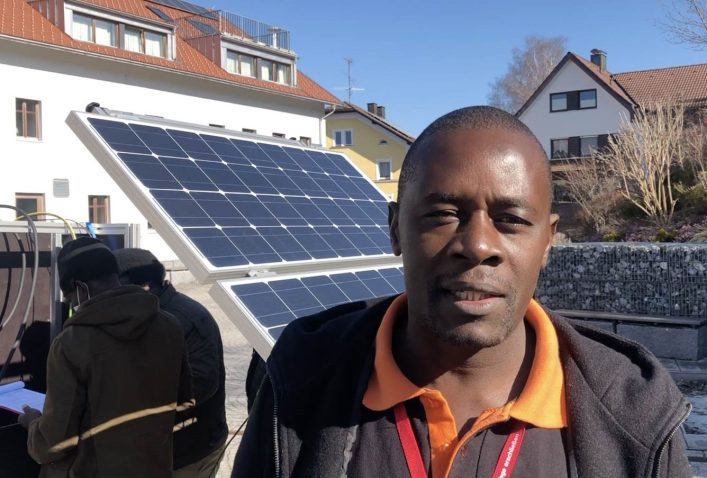
Like Betrand Pani, Wekesa is a trained master trainer. He founded the Renewable Energy Research Consortium (RERC) at the Multi Media University in Nairobi. About his training in Wildpoldsried he says: “The ten-day PV training in Germany broadened my horizon”. In his institute, he currently offers at least one PV course per month and has already trained four other master trainers. “Together we have held twelve training courses with 90 trainees. I also founded a chair for PV systems,” he says.
One of these trainees was Veronica Terenoi Nkooyio, who now works as a PV systems trainer and has big goals. “I want to establish a training centre to advance the productive use of PV systems,” she says. Like VET4Africa, she wants to keep her courses very practical. “The practical training is the key to more quality from my point of view,” she says.
It is these results and feedback that drive Günter Mögele and Manfred Wolf. “We have created eye-level help for self-help,” says Manfred Wolf. From his point of view, VET4Africa has succeeded in didactically breaking down a relatively complex subject matter in such a way that practical benefits can quickly emerge from it. “And I am very proud of our colleagues who continue to accompany their African trainees as mentors.”
From Wildpoldsried to Africa
The examples from Cameroon, Kenya and Uganda show that in Africa, as in Wildpoldsried, it also depends on key people who want to advance the potential of renewable energies. Sharing common knowledge lays the foundation for this. In addition, it needs people who pursue their utopias independently of the majority opinion. That is why the small Allgäu village is also important for African pioneers – and vice versa.
